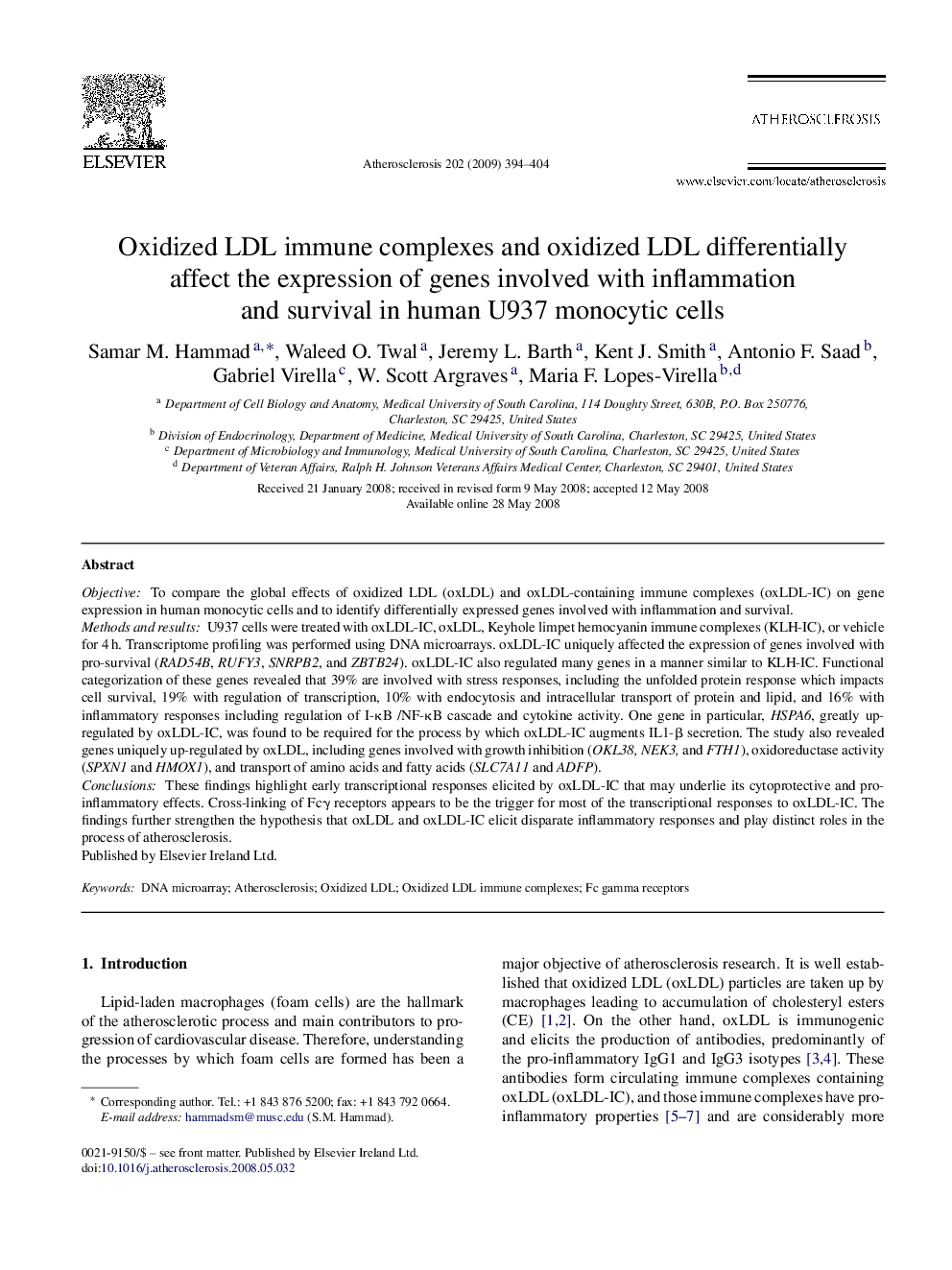| کد مقاله | کد نشریه | سال انتشار | مقاله انگلیسی | نسخه تمام متن |
|---|---|---|---|---|
| 2893813 | 1172421 | 2009 | 11 صفحه PDF | دانلود رایگان |

ObjectiveTo compare the global effects of oxidized LDL (oxLDL) and oxLDL-containing immune complexes (oxLDL-IC) on gene expression in human monocytic cells and to identify differentially expressed genes involved with inflammation and survival.Methods and resultsU937 cells were treated with oxLDL-IC, oxLDL, Keyhole limpet hemocyanin immune complexes (KLH-IC), or vehicle for 4 h. Transcriptome profiling was performed using DNA microarrays. oxLDL-IC uniquely affected the expression of genes involved with pro-survival (RAD54B, RUFY3, SNRPB2, and ZBTB24). oxLDL-IC also regulated many genes in a manner similar to KLH-IC. Functional categorization of these genes revealed that 39% are involved with stress responses, including the unfolded protein response which impacts cell survival, 19% with regulation of transcription, 10% with endocytosis and intracellular transport of protein and lipid, and 16% with inflammatory responses including regulation of I-κB /NF-κB cascade and cytokine activity. One gene in particular, HSPA6, greatly up-regulated by oxLDL-IC, was found to be required for the process by which oxLDL-IC augments IL1-β secretion. The study also revealed genes uniquely up-regulated by oxLDL, including genes involved with growth inhibition (OKL38, NEK3, and FTH1), oxidoreductase activity (SPXN1 and HMOX1), and transport of amino acids and fatty acids (SLC7A11 and ADFP).ConclusionsThese findings highlight early transcriptional responses elicited by oxLDL-IC that may underlie its cytoprotective and pro-inflammatory effects. Cross-linking of Fcγ receptors appears to be the trigger for most of the transcriptional responses to oxLDL-IC. The findings further strengthen the hypothesis that oxLDL and oxLDL-IC elicit disparate inflammatory responses and play distinct roles in the process of atherosclerosis.
Journal: Atherosclerosis - Volume 202, Issue 2, February 2009, Pages 394–404